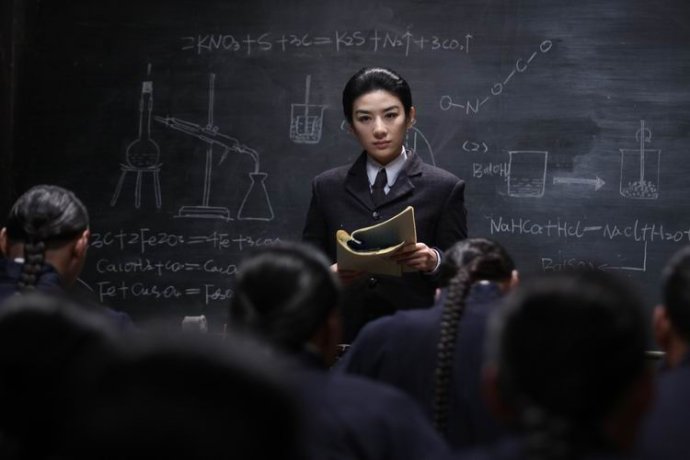China Chronicles is when we have a look back at 5,000 years of Chinese history - and pick out something pertinent...
This spring, Disney announced that they were be producing a live-action version of that beloved classic Mulan, based on the classic Chinese tale of legendary woman warrior Hua Mulan - and causing more than a few concerns about potential whitewashing of the cast.
Mulan is not China's only historical heroine, however. A century ago, another fearless woman warrior fought for her country and died - not to defend the ruling dynasty, however, but to overthrow it...
Born in 1875 and beheaded in 1907, Qiu Jin left a deep impression on Chinese history within her short life, and one that was appreciated across China's bitterly divided political spectrum in the twentieth century.
Much of what made Qiu Jin exceptional was simply how she lived. Trapped in a loveless and oppressive marriage like many of her generation, Qiu chose to break free rather than live a life of quiet desperation.
Her first move was to join the triads, who, at the time, were not only a criminal organization but also a politically subversive one. The triads' began life in the seventeenth century as Ming Dynasty loyalist groups driven underground by the advent of the Qing Dynasty, where they continued to advocate an overthrow of the Manchus and a return to Han Chinese rule.
In 1903, she left behind her two children ad sailed for Japan, where she began studying at the Girls' Practical School in Tokyo. It was there that Qiu developed her flair for the martial arts as well as her unique fashion sense, acquiring a reputation for wearing Western-style men's suits.

Huang Yi as Qiu Jin in 2011 film The Woman Knight of Mirror Lake
In the early twentieth century, Japan served as a base for Nationalist revolutionaries from China. Sun Yat-sen's Revolutionary Alliance was founded in Tokyo in 1905, and Qiu Jin was a founding member, charged with responsibility for her native Zhejiang Province.
Amongst the student revolutionaries in Japan at the time, there was a division between those who wanted to remain in Japan to continue preparations and those who advocated an immediate return to the motherland to join the ongoing struggle.
At a meeting of Zhejiang students to discuss the issue, Qiu thrust her dagger down into the podium and proclaimed to the crowd: “If I return to the motherland, surrender to the Manchu barbarians and deceive the Han people, so stab me with this dagger!” There was no doubting that her allegiances lay with the latter group.
In 1906, Qiu returned to China with some 2,000 other students and joined forces with her cousin Xu Xilin to unite desperate secret societies to work for the overthrow of the Qing together. She founded a radical women's journal with another female poet, Xu Zihua, and became head of the Datong School in Shaoxing, ostensibly a school for sports teachers but really intended for revolutionaries' military training.
On July 6, 1907 Xu Xilin was arrested before a scheduled uprising in Anqing; he confessed under interrogation and was summarily executed. Six days later, Qiu was arrested at the girls' school where she was a principle but wouldn't crack even under torture.
Nonetheless, authorities found incriminating documents and publicly beheaded her just a few days later, in her home village of Shanyin. She was 31.
Immediately, Qiu became a revolutionary heroine, a celebrated martyr and a symbol for the independence of Chinese women. She is now buried beside Hangzhou's West Lake, and a museum occupies her former residence in Shaoxing.





















0 User Comments